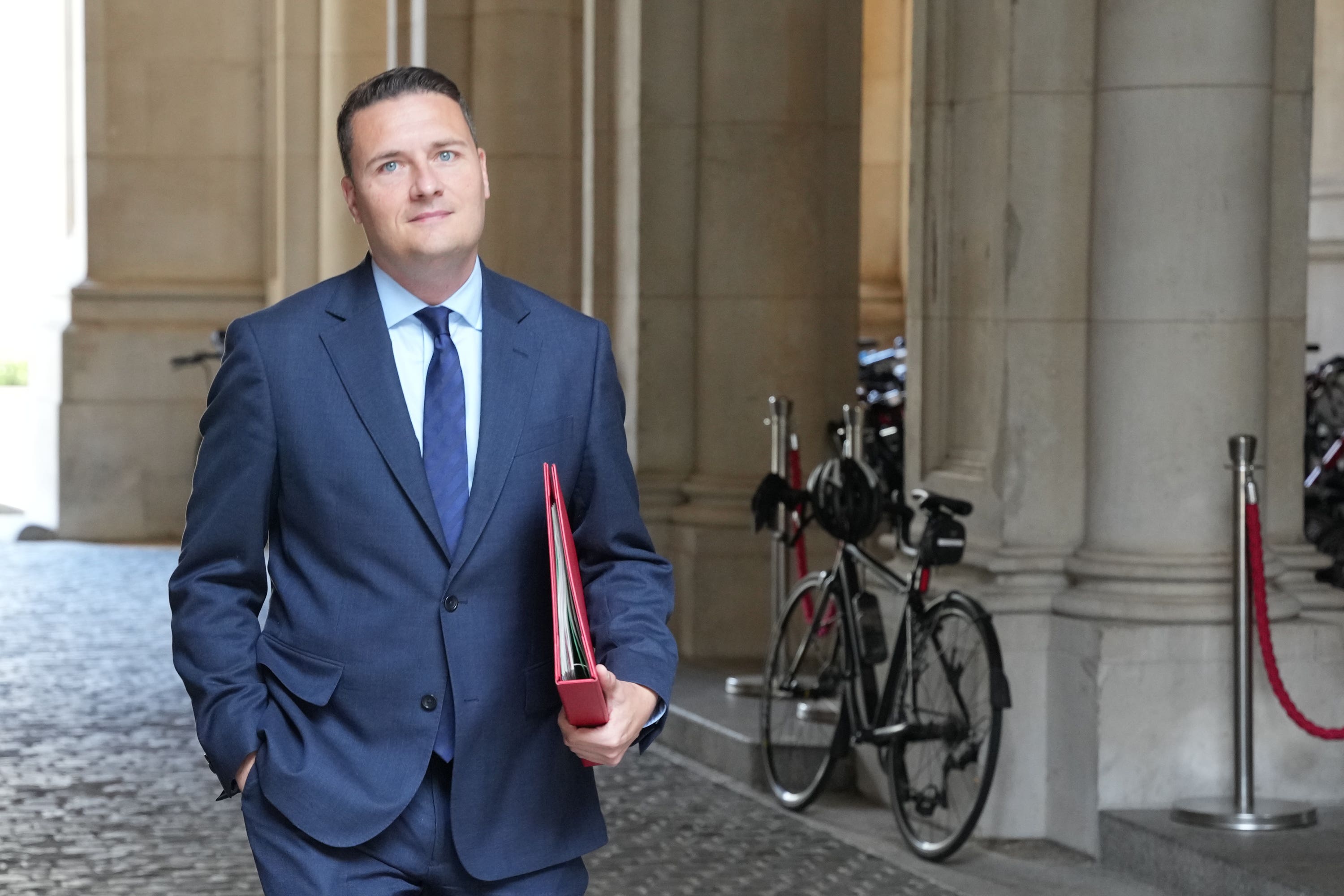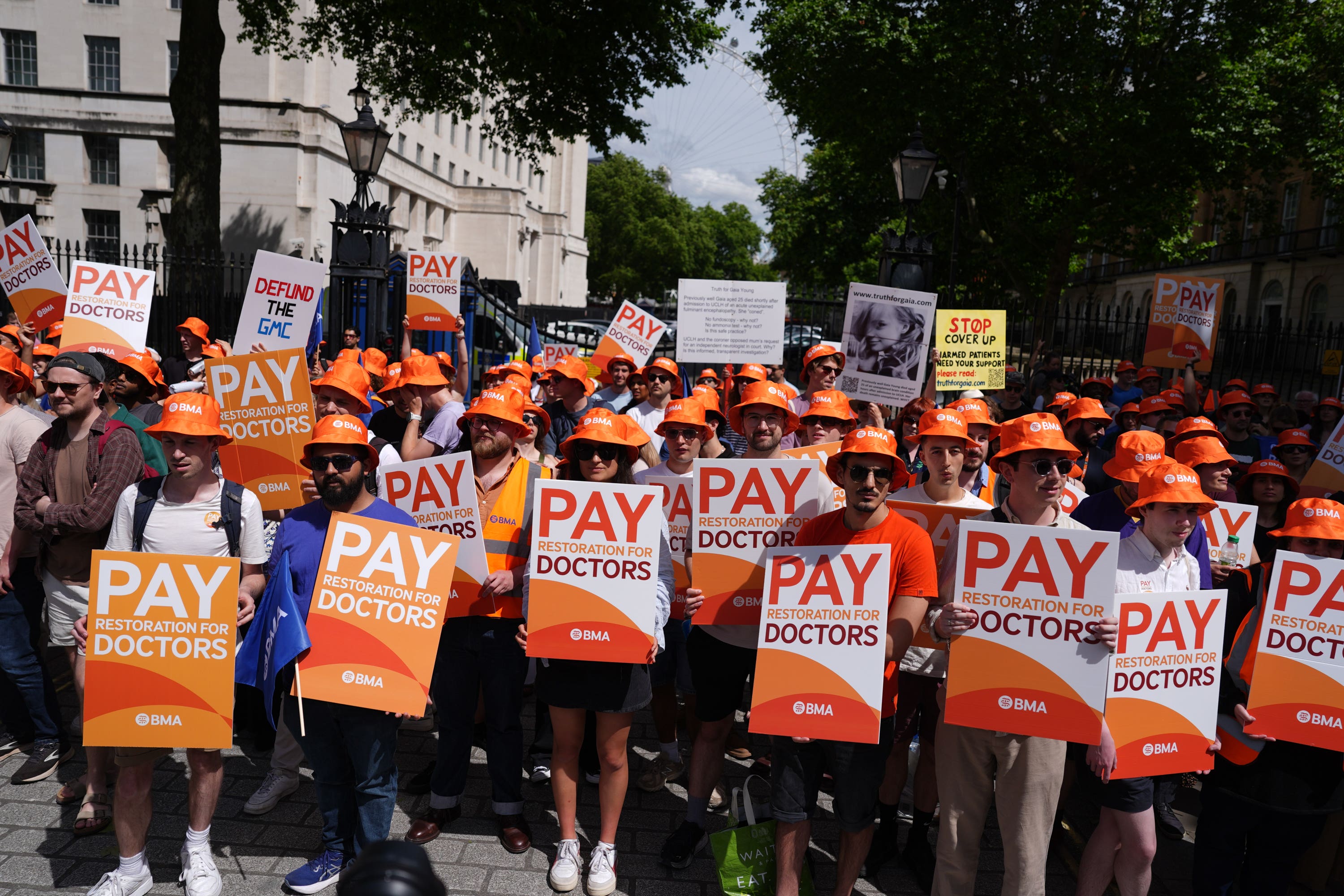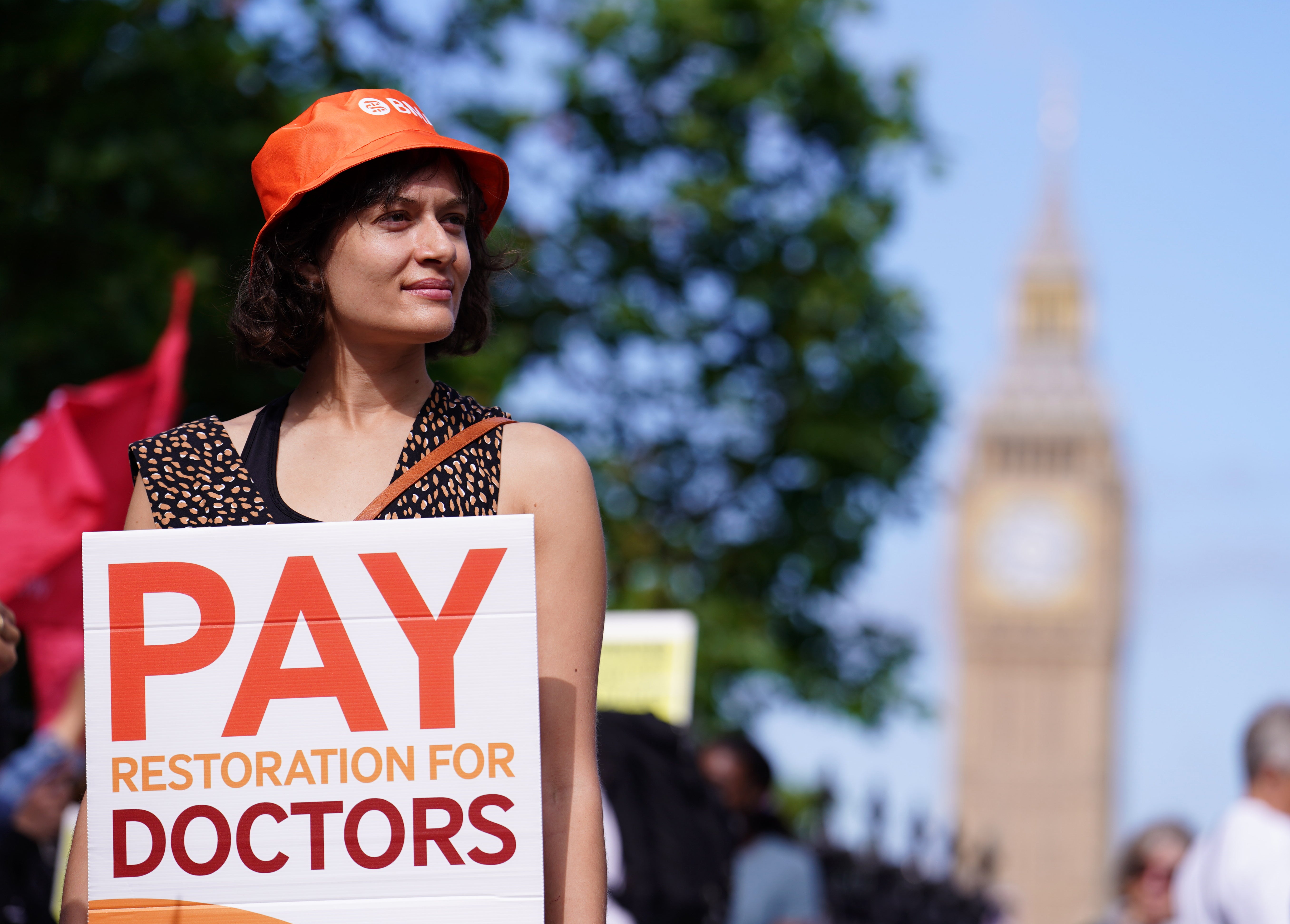Junior doctors vote to accept government pay deal of 22.3% over two years
Health secretary Wes Streeting ‘pleased’ deal has been accepted

Junior doctors have voted to accept a government pay deal worth 22.3 per cent on average over two years, the British Medical Association has said.
The deal will see junior doctors’ pay rise by between 3.71 per cent and 5.05 per cent – averaging 4.05 per cent – on top of their existing pay award for 2023-24. This will be backdated to April 2023.
Wes Streeting, the health secretary, said he is pleased the BMA has accepted the government’s pay deal and said that the situation “should never have been allowed to get this bad”.
The last strike by juniors doctors, which took place from 27 June to 2 July, affected 61,989 appointments, procedures and operations, according to NHS England.
In a statement, the BMA said: “The BMA’s junior doctors committee (JDC) in England has accepted the government’s pay offer, with 66 per cent of junior doctors voting in favour of the deal.”

The statement added: “Outside the pay negotiations, the government has agreed that from September 18 ‘junior doctors’ across the UK will be known as ‘resident doctors’ to better reflect their expertise.
“This follows a motion to the BMA’s annual policy making conference in 2023 when doctors voted in favour of a name change.”
Both rises mean a doctor starting foundation training in the NHS will see base pay increase to £36,600, up from about £32,400. A full-time doctor entering specialty training will have basic pay rise to £49,900 from about £43,900.
For the online referendum, 45,830 junior doctors in England took part between 19 August and 15 September, with a turnout of 69 per cent.
Following the agreement, Mr Streeting said: “We inherited a broken NHS, the most devastating dispute in the health service’s history, and negotiations hadn’t taken place with the previous ministers since March.
“Things should never have been allowed to get this bad. That’s why I made ending the strikes a priority, and we negotiated an end to them in just three weeks.

“I am pleased that our offer has been accepted, ending the strikes ahead of looming winter pressures on the NHS.
“This marks the necessary first step in our mission to cut waiting lists, reform the broken health service, and make it fit for the future.”
Amanda Pritchard, chief executive of NHS England, said junior doctors voting to accept the government pay deal provides “welcome certainty”.
She said: “After unprecedented periods of industrial action, this agreement is excellent news for patients, doctors and the wider NHS. It provides welcome certainty particularly as we head into what we know will be a very challenging winter.
“The NHS is nothing without junior doctors – they make up almost half of the medical workforce, working across a wide range of services every day to provide expert, compassionate care to patients.
“It is absolutely right that they feel valued and that we do everything within our power in the NHS to improve their working lives.”
She added that they would continue to work closely alongside the government and the BMA to implement the actions of the deal.
Dr Robert Laurenson and Dr Vivek Trivedi, the BMA junior doctors committee co-chairs, said: “It should never have taken so long to get here, but we have shown what can be accomplished with our determination and with a government willing to simply sit down and talk realistically about a path to pay restoration. One strike was one strike too many.
“This deal marks the end of 15 years of pay erosion with the beginning of two years of modest above inflation pay rises. There is still a long way to go, with doctors remaining 20.8% in real terms behind where we were in 2008.”
Join our commenting forum
Join thought-provoking conversations, follow other Independent readers and see their replies
0Comments